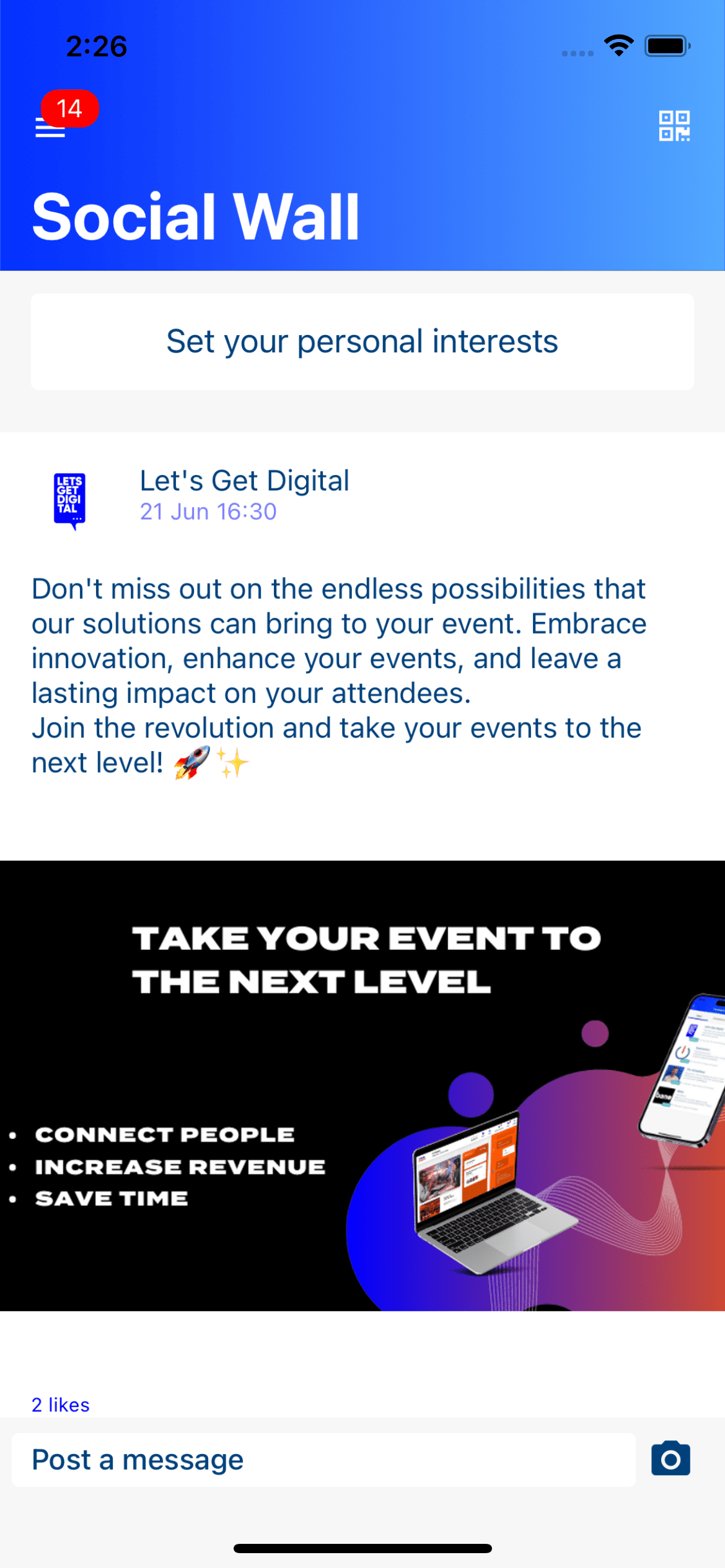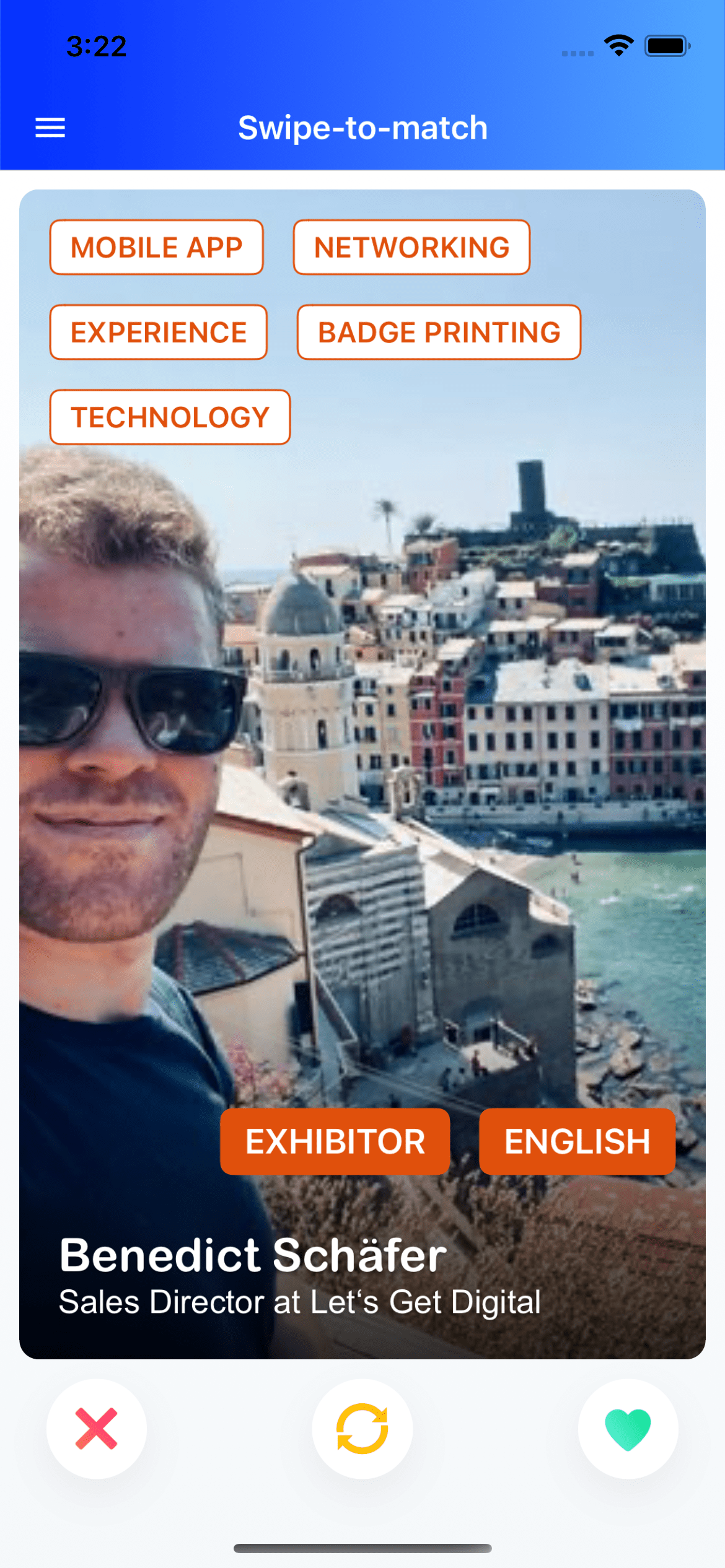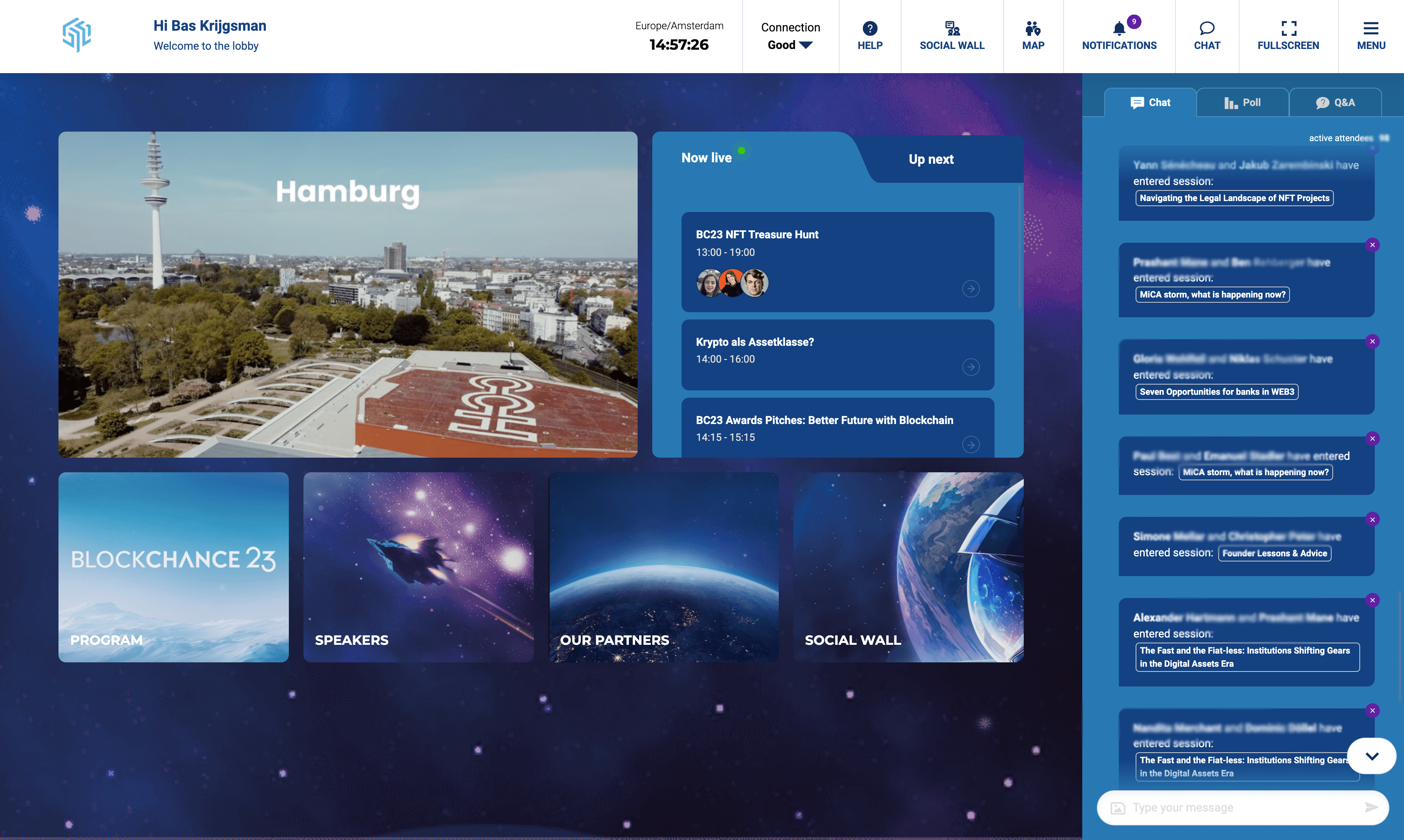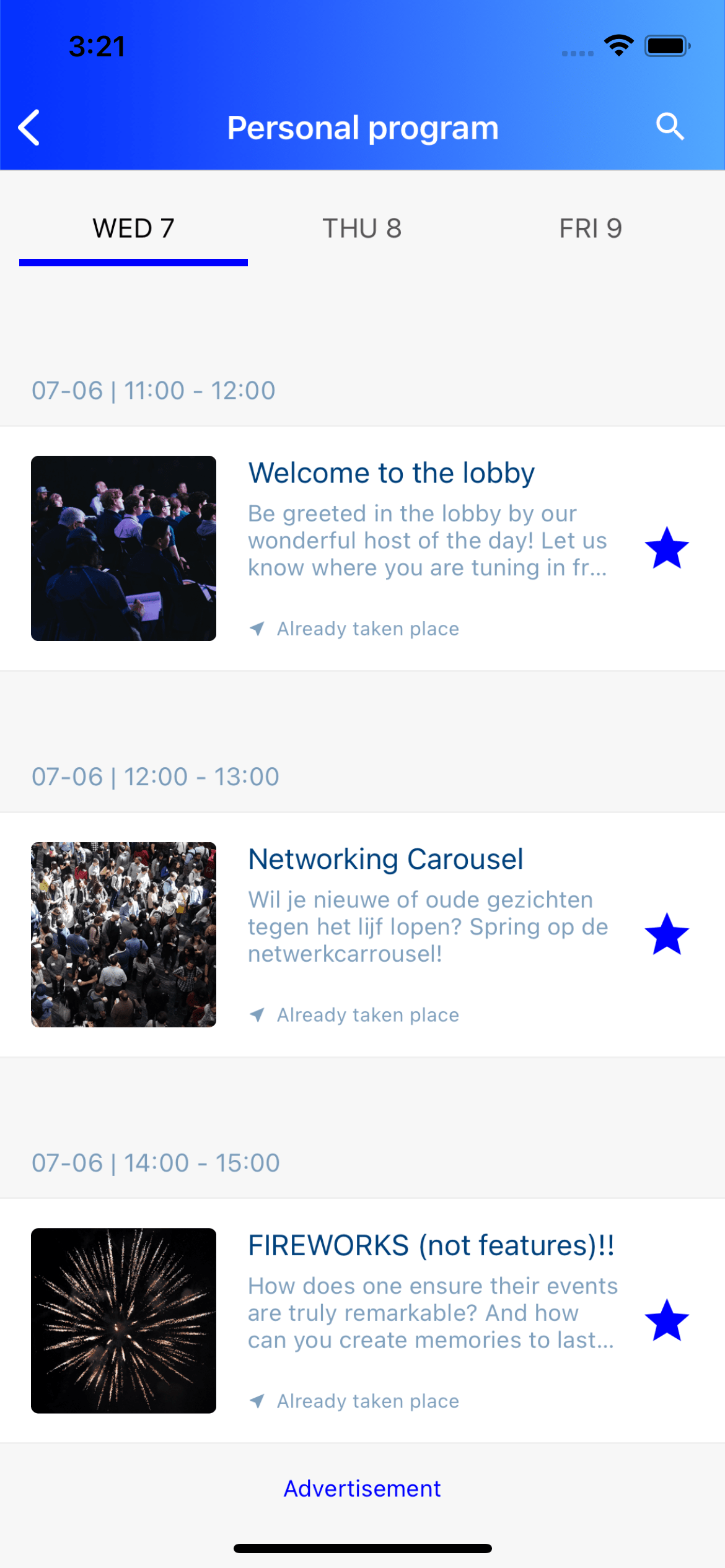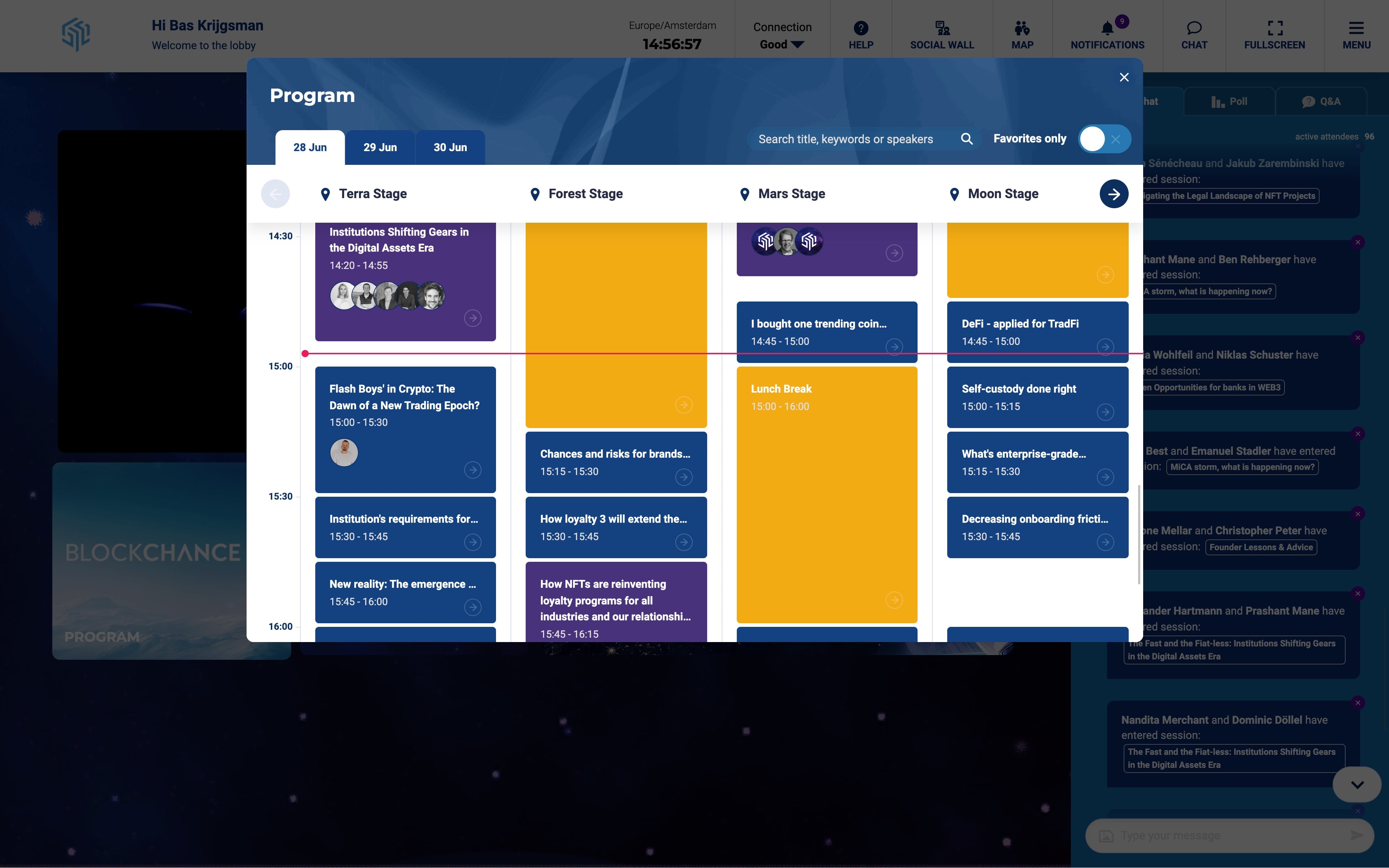Maximizing the value OF your events
Let's Get Digital enhances the connections established between your attendees, amplifies exhibitors' return on investment, and helps event organizers to save time.
All while giving you and your stakeholders a great experience.
*Start free trial or get the help of our consultants.
2M+
Attendees used Let's Get Digital
75+
NPS score of our clients
850+
Clients around the world
Trusted by more then 3500+ events
Specifically developed for your B2B events
- Automated playbooks
- Developed with event managers
- Focused on time reduction
Exhibitions & Trade Shows
Create happy exhibitors by providing more return of investment.
- Easy lead generation
- More exposure for sponsors
- Fast & Professional check-in
Networking events & Summits
Bring the right people together at the right place.
- New connections for (relevant) attendees
- Unique experience that are remembered
- Pre & post event engagement
Congresses & Conferences
Build a knowledge network around a specific topic.
- Create communities that last
- Gather Insights from your visitors' feedback
- Save time in administrative tasks
Recruitment & Career events
Help your attendees to find the right job instantly.
- Companies meet relevant candidates
- More exposure for sponsors
- Fast & Professional check-in
Open (Business) Days
Show your attendees that your organization stands out.
- Offer unique tours through the locations
- Expand your audience and reach more students & clients
- Gather valuable insights & data
Travel & Celebration events
When you want to delivery something extra to your attendees.
- Save time!
- Information & direct communication
- Create communities that last
Other event?
We help out the most of the B2B events. Talk to on our sales consultants to discover in 15 minutes how we can help you out.
And if we can't, we will provide you with the right supplier. Promised!
Our strong points
-
Networking
We bring the right people, together on the right place at the right time. Meeting new people get's easy.
-
Exhibitor ROI
Your event sponsors should not only be happy but also have the best ROI. We boost ROI and with that maximise your sponsor income.
-
Save time
Optimise your event planning with our efficient software. Automate registration and communication for more time and less hassle.
Event types
